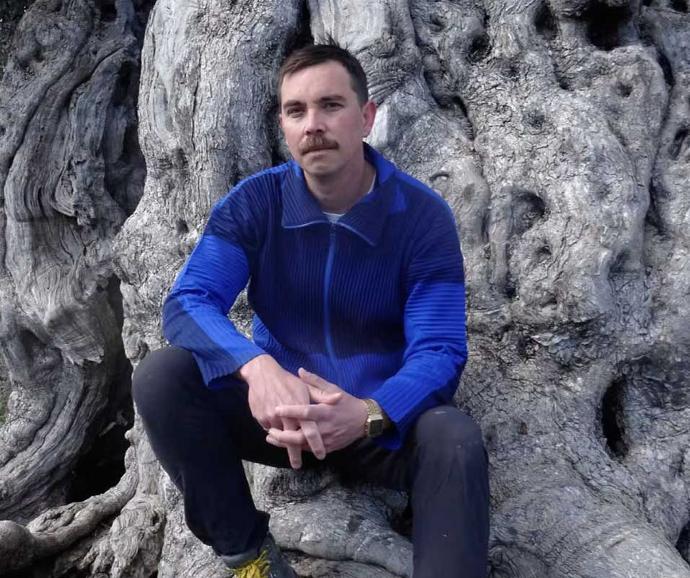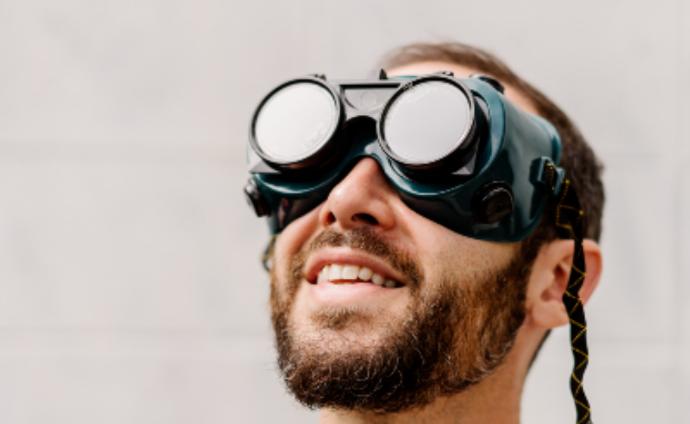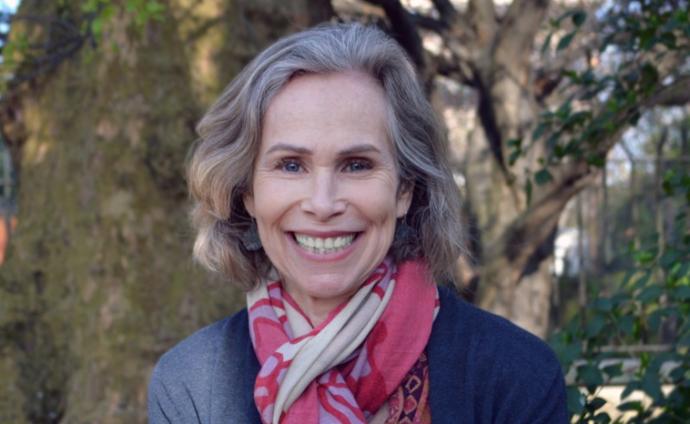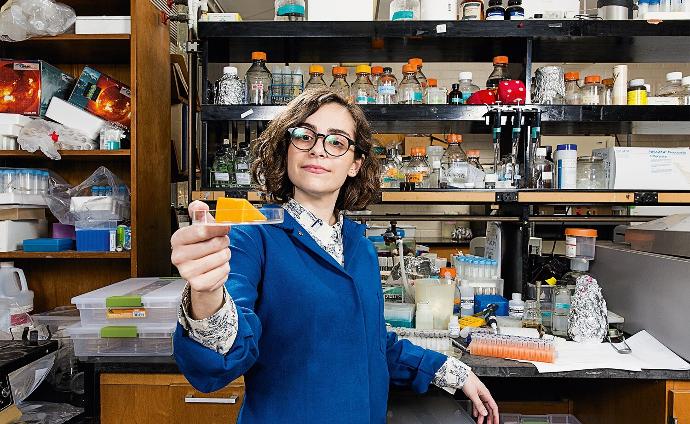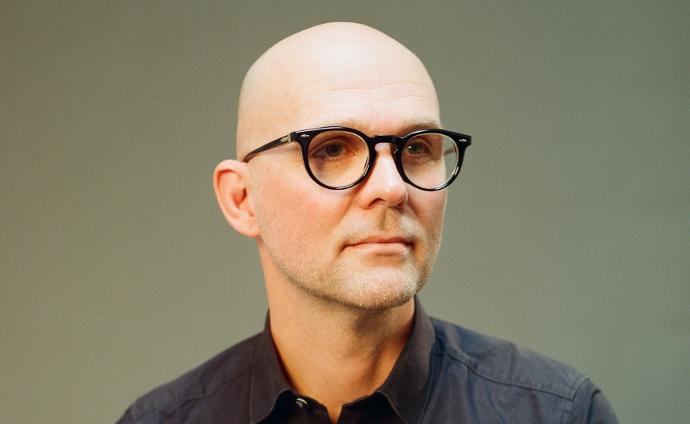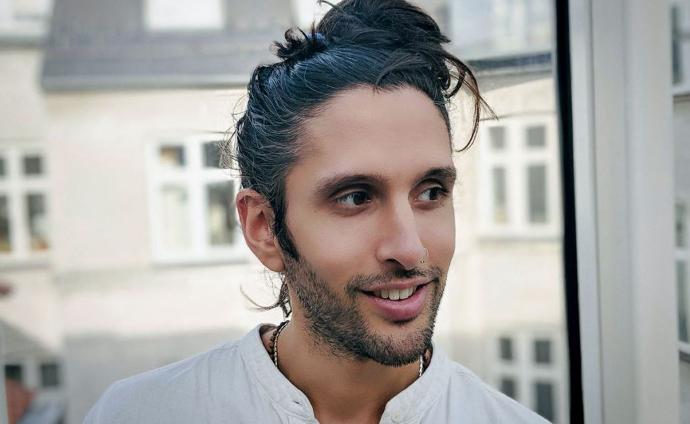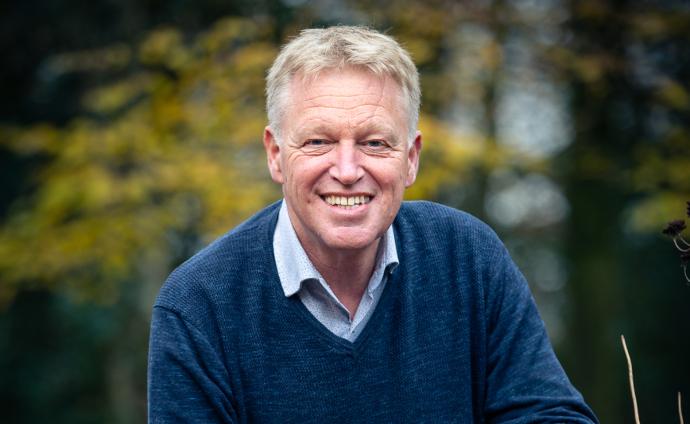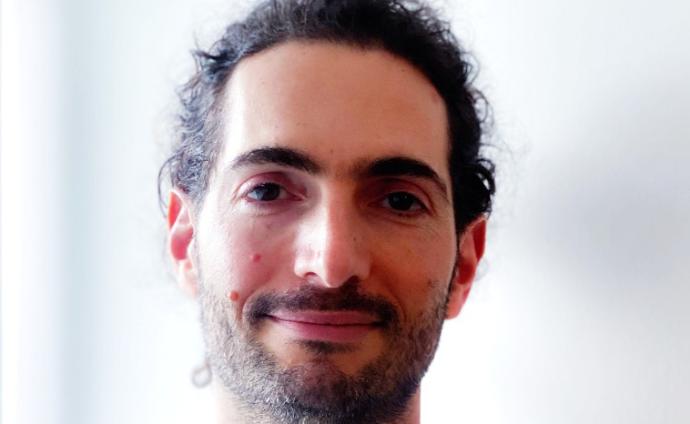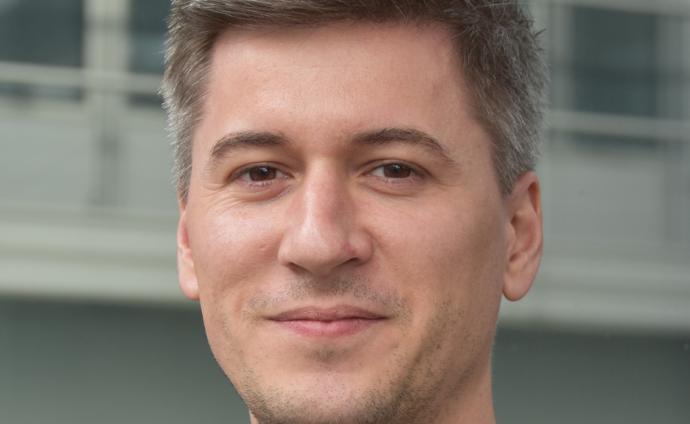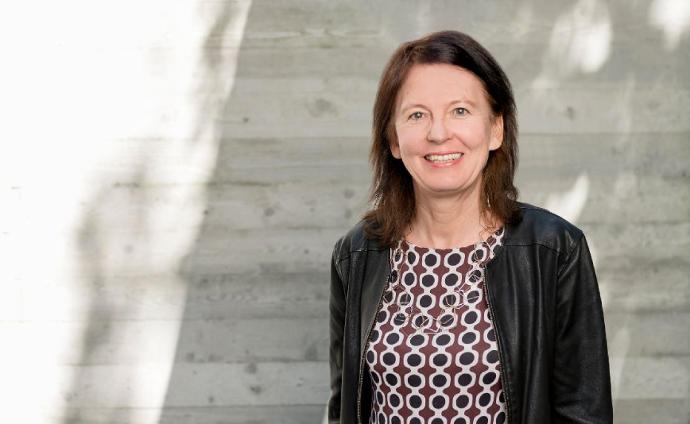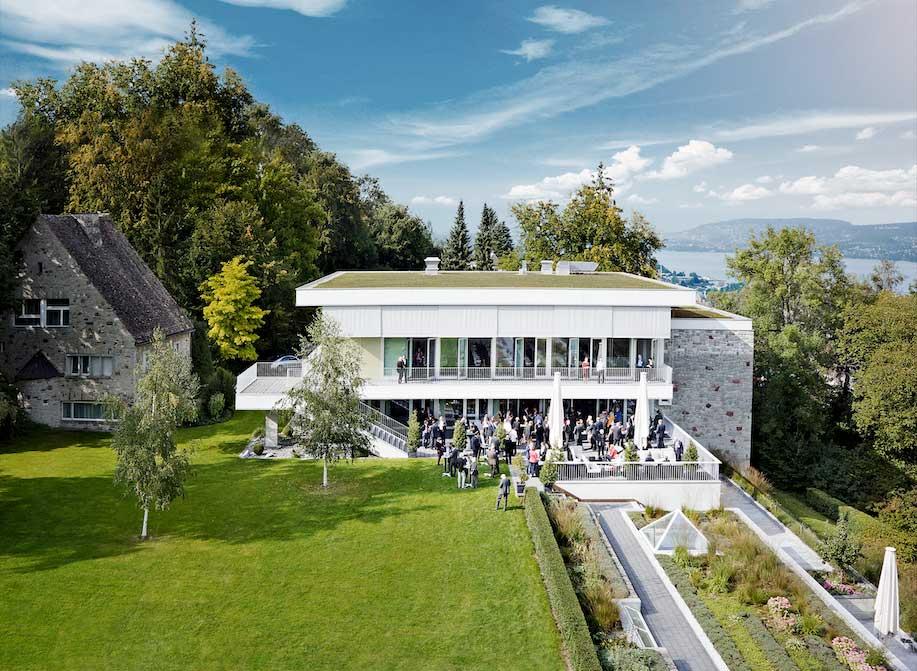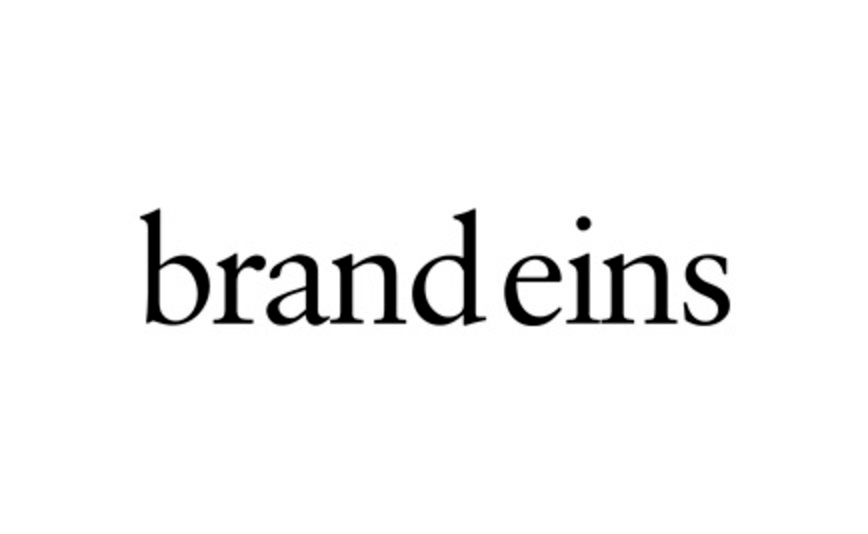19. Europäischer Trendtag
Inspired by Nature: Die Wirtschaft von morgen basiert auf Biologie
Inspired by Nature: The Next Economy Is Based on Biology
Climate neutrality, zero waste, circular economy: the goals are set. The solutions, however, are less certain. The developments of the bioeconomy offer some. They are based on renewable materials and fuels. Many revolutionary technologies are on the verge of a breakthrough, and some are even on the verge of commercialisation: animal-free meat, biofuels, and leather made from mushrooms. Nature is increasingly serving as a model for design, construction and production.
Digitalisation is followed by the age of biologisation. The change in values is already taking place in many people's minds. With urban gardens and green building fronts, we are bringing the wilderness back into the cities and exploring the social life of plants or the communication of animals. We grant basic rights to bodies of water and make the earth a co-owner of global companies.
At the 19th European Trend Day, we show how the understanding of nature and our relationship with it are changing and where social and entrepreneurial potentials lie. We present the latest findings from research and the most exciting start-ups in the bioeconomy. And we discuss questions like:
- Which industries will biotechnology revolutionise?
- Which findings from the research labs are ready for the market?
- What are the rules of the game and who are the pioneers of the bio-based economy?
- From rewilding to construction botany: How will our cities change?
- Will we still distinguish between artificial and natural in the future?
The European Trend Day will be held in German and English (with simultaneous translation).
Hashtag: #trendday2023
We Are at The Beginning of The Age of Biology
Vegan leather from mushrooms, plastic-eating bacteria or data storage in plant DNA: The future belongs to biology. The new bioeconomy is estimated to reach a volume of several trillion dollars in the next ten years. And that would only be the beginning. A new illustration from the GDI shows the potential of the bioeconomy.

Speakers
Author of "Ways of Being – Animals, Plants, Machines: The Search for a Planetary Intelligence". Bridle’s writing on literature, culture and networks has appeared in magazines and newspapers including "Wired", "The Atlantic", "New Statesman", "The Guardian", and the "Financial Times". They are considered a thought leader and critic of the digital technological future. Their artworks have been commissioned by galleries and institutions and exhibited worldwide and on the internet.
Raskin and the Earth Species Project team are using AI to decode non-human communication with the goal of transforming our relationship with the rest of nature. He is also co-founder of the Center for Humane Technology, co-host for the popular podcast Your Undivided Attention, and a member of the World Economic Forum’s Global AI Council. He helped found Mozilla Labs and was a subject and co-creator of the Emmy-award winning documentary "The Social Dilemma".
Lawton has more than 30 years of international experience working with leading organizations focused on sustainable development and nature conservation. She held senior roles with Forum for the Future, The B Team, International Union for Conservation of Nature, the Nature Conservancy of Canada and the Jane Goodall Institute of Canada.
For the past five years, Agapakis has worked as the creative director of Ginkgo Bioworks, a pioneering synthetic biology company based in Boston. The company specialises in the genetic engineering of bacteria for industrial applications. New materials are to be produced with the help of synthetic cells. Gingko Bioworks has been listed on the stock exchange as an «organism company» since 2021.
ToftH is a research institute that combines philosophy, art and tech. The institute conducts philosophical-conceptual research for tech innovation companies, and is also an academy as well as an art producing and exhibiting platform. Its focus is on the difference today makes with respect to yesterday: what about contemporary technology is so new/different that it requires yet to be invented ways of thinking? Previously, Rees was William Dawson Chair at McGill University; Reid Hoffman Professor of Humanities at Parsons; and Director at the Los Angeles based Berggruen Institute.
Grow Your Own Cloud is a green biotech company developing regenerative data solutions through DNA data storage in Plants. The company thus works with data as a material and nature as a technology. As an independent creative and futurist, Clarke consults and develops work for corporate clients, as well as institutions such as the UN and EU. His creative work has been recognised and exhibited internationally, most notably SXSW, and Ars Electronica.
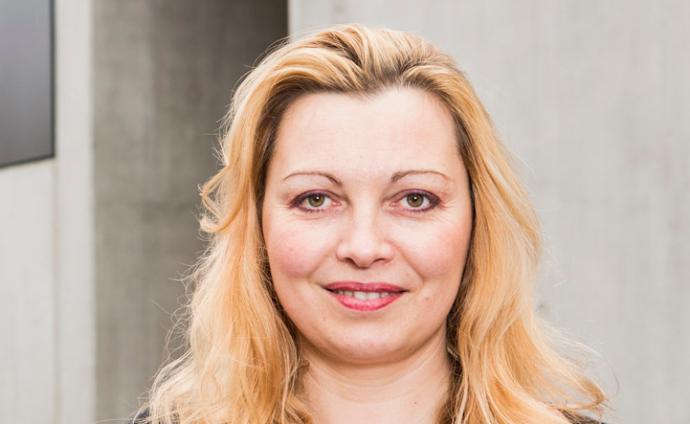
Carole Collet
Professor in Design for Sustainable Futures
Central Saint Martins UAL in London
Great Britain
Website
Collet is co-director of the Living Systems Lab, a research group dedicated to the exploration of living systems for the pursuit of new ecological knowledge in the creative sector. She is also Director of Maison/0, a platform for regenerative luxury. Collet has collaborated with LVMH, as well as Fendi and the Imperial College London to prototype a like for like alternative lab-grown fur fibre for luxury.
During his professional career, which now spans over 30 years, Schepers specialised in rewilding large landscapes (in particular in Africa, Europe and Central Asia), where nature and wildlife can bounce back and where people can enjoy and benefit. From 2000 to 2014, Schepers was responsible for international conservation programmes at WWF Netherlands. Many of the experiences he built up from across the world have been used to design and develop Rewilding Europe.
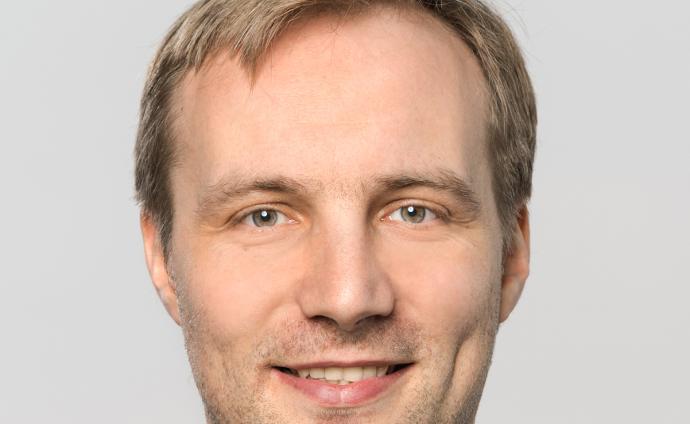
Ferdinand Ludwig
Architect and Professor of Green Technologies in Landscape Architecture
Technical University of Munich
Germany
Website
Ludwig's research focuses on architectural concepts in which plants play a key role. Their functional and creative integration provides answers to the burning ecological questions of our time, such as adapting to climate change. In 2007, Ludwig founded the research area of architectural botany at the University of Stuttgart.
Kauffman invests in planetary health through his animist investment studio Ground Effect. He aims to steer capital and support cultural interventions that shift the worldview around nature. His growing emphasis is on supporting biodiversity, and advocating for the diverse intelligences of the more-than-human world.
Markus Arnoldini researches how the ecology of the gut microbiota and the physiology of the host influence each other. He was previously trained in evolutionary microbiology and quantitative biology at ETH Zurich and UC San Diego.
The Villars Institute is a nonprofit foundation based in the Swiss Alps dedicated to accelerating the transition to net zero emissions and a healthier planet through intergenerational collaboration and systems leadership. The GDI has invited three Villars Fellows to participate in the Trend Day and share their thoughts and key learnings about the potential of biology for the economy and society.
Karin Frick is Principal Researcher at the Gottlieb Duttweiler Institute. As an economist, she researches trends and countertrends in business, society and consumption. Frick has held various positions in which she worked on future-related topics, innovation and change in people and markets. She was editor-in-chief of the well-known quarterly publication GDI IMPULS and managing director of the Swiss Society for Futures Studies (swissfuture).
Moderation
Tama Vakeesan hosts various programs on Radio SRF1 and is one of the most popular presenters in Switzerland. Her career began at the youth station Joiz, and she gained additional experience at live events, on television, online and on the radio.
Programme
08.30
Welcome coffee
09.00
Lukas Jezler, CEO, Gottlieb Duttweiler Institute
Introduction
09.15
Tobias Rees, Founder and CEO, Transformations of the Human (ToftH)
The New Age of Biology: Why Nature Becomes the New Tech
James Bridle, artist, technologist, and author of "Ways of Being"
Nature as a Blueprint: Looking Beyond Human Intelligence
What can we learn from animals, plants, and natural systems to rethink society, ecology and technology?
Karin Frick, Principal Researcher, Gottlieb Duttweiler Institute
Biophilia: What Nature Means to Humans
An analysis of the human-nature relationship and how it is changing.
10.40
Break
11.10
Joshua Kauffman, Founder, Ground Effect
Investing With Biophilia: What Does Nature Value?
What it means to back ventures that consider the interests of living systems.
Christina Agapakis, Creative Director, Ginkgo Bioworks
The Future Is Synthetic: The Real World of Biotechnology
Synthetic biology seeks to make programming cells as easy as programming computers, to address challenges in health and medicine, food and agriculture, or materials and sustainability. What does the future hold when we design with living things?
Cyrus Clarke, Founder, Grow Your Own Cloud
Reimagining the Cloud: When Trees Become Data Centers
Plants are Planet Earth's true superheroes: They create their own energy, self-replicate, absorb CO2 and provide us with oxygen. They can also store data.
12.30
Networking lunch
14.00
Carole Collet, Professor in Design for Sustainable Futures, Central Saint Martins UAL
Biofabrication: Designing Alternative Materials With Living Systems
How and why should we build the next generation of sustainable and regenerative materials based on research in ecology and biodesign? Collet positions the fast growing biomaterial landscape in the context of our biodiversity and climate emergency and discusses how biofabrication is disrupting the fashion and luxury sector.
Markus Arnoldini, Lecturer, Department of Health Sciences and Technology, ETH Zürich
Human Petri Dishes: Using Microbes for Our Well-Being
The human body is a surface for bacterial colonization. Our interactions with the microbial environment influence our health. Because humans are open systems.
Ferdinand Ludwig, architect and Professor of
Green Technologies in Landscape Architecture, Technical University of Munich
Architectural Botany: Building With Living Trees
How technology and nature can be merged to make plants part of architecture.
Bioeconomy 2030: Viewpoints from Tomorrow's Leaders with the Villars Fellows
Emily Ringger, Student, International School Zürich
Matteo Markel, Student, International School Zug & Luzern
Kate Chakravarty, Student, International School Basel
15.45
Break
16.15
Frans Schepers, Executive Director, Rewilding Europe
The Rewilding Movement: Letting Nature Lead
How to scale up the recovery of European landscapes by supporting nature’s inherent powers.
Aza Raskin, Co-founder, Earth Species Project (video)
New Frontiers: Using AI to Communicate With Other Species
Exploring the new advances in technology that offer the potential for two-way communication with other species, and how this might powerfully transform our relationship with the rest of nature.
With Jane Lawton, Director of Development and External Affairs, Earth Species Project
17.15
Networking apéro
Information
Date
08 March 2023
Language
German and English, with simultaneous interpretation
Programme changes
The programme is subject to change. Should an event not take place, the participation fee will be refunded. Further claims are ruled out.
Cancellation
If you are unable to attend, please cancel your registration in writing. The participation fee will be refunded up to thirty days before the event. After that and up to five full working days before the event, we will charge 75%, and for cancellations after that we will charge the full amount. A substitute participant is always welcome.
Hotel reservation
To benefit from special rates at our partner hotels, please mention the code ETD2023 when booking your room.
Hotel Sedartis, Thalwil: info@sedartis.ch
Hotel Belvoir, Rüschlikon: info@hotel-belvoir.ch
Hotel Alex Lake Zürich, Thalwil: reservations@alexlakezurich.com
Arrival
From Zurich Airport
A taxi will take you to the GDI and the partner hotels in around 45 minutes at around CHF 100, depending on traffic. The S-Bahn will take you quickly and conveniently to Zurich and Thalwil station.
From Thalwil train station
A free shuttle bus is available for transfers between Thalwil train station / Hotel Sedartis and the GDI. It waits on the lake side of the station. A member of staff will welcome you on the spot.
Thalwil train station - GDI: 08.00 - 08.45, every 15 minutes
GDI - Thalwil train station: 17.15 - 19.00, every 15 minutes
The Hotel Belvoir is within walking distance of the GDI.
Parking
The parking deck is located a five-minute walk from the GDI at Zürcherstrasse 4, 8803 Rüschlikon. You can obtain a free exit ticket at the GDI.
Fees
Full price: CHF 1200
20 % early bird discount until 31 December 2022: CHF 960
Price for startups: CHF 490 (Request for voucher code: etd(at)gdi.ch)
The conference fee includes all food and beverages. Participants registering less than two weeks before the event can pay by credit card only.
About
The European Trend Day is a gathering on digitisation and society. With a different theme each year, the event discusses technological innovations and their impact on the economy and society. Speakers explore new possibilities of the still unthinkable and unimaginable. Participants are decision-makers from marketing, retail, consulting as well as entrepreneurs, academia and journalists from quality media.
Participants
Executives
Speakers
Past conferences
Datum & Uhrzeit
Mittwoch
8. März 2023
Ort
GDI Gottlieb Duttweiler Institute
8803 Rüschlikon
Schweiz
